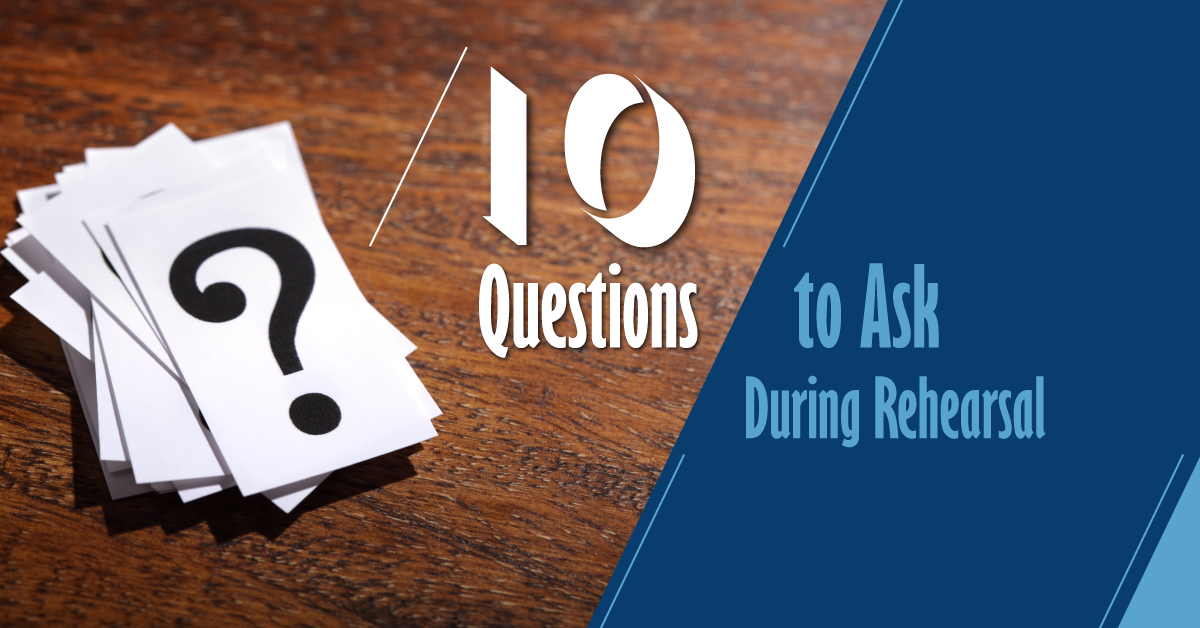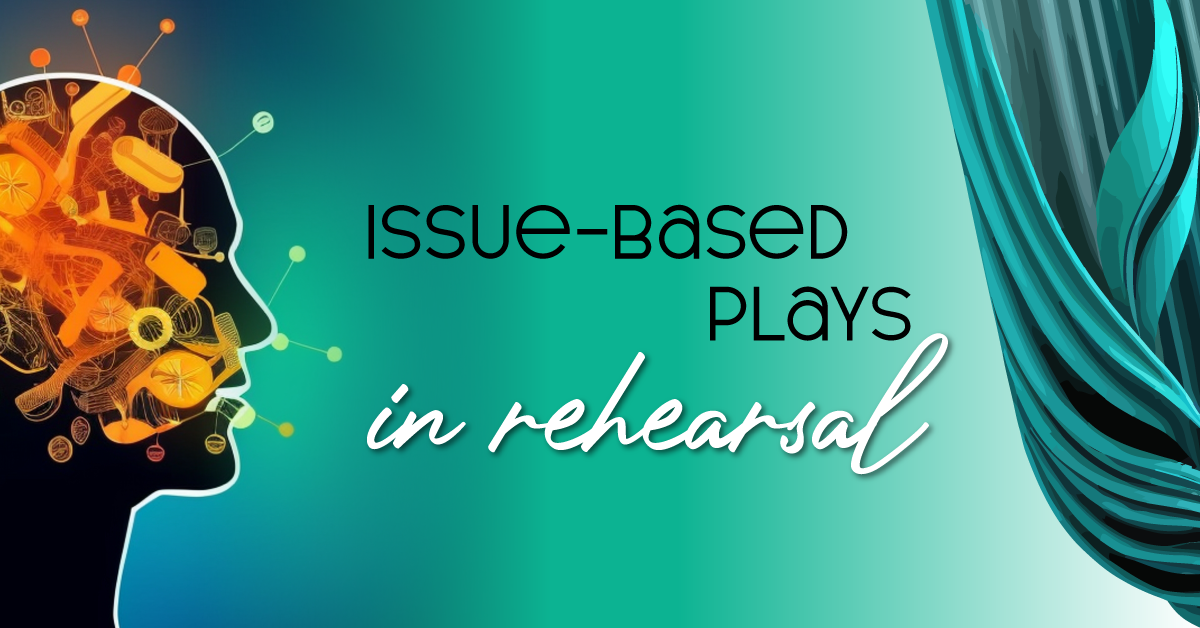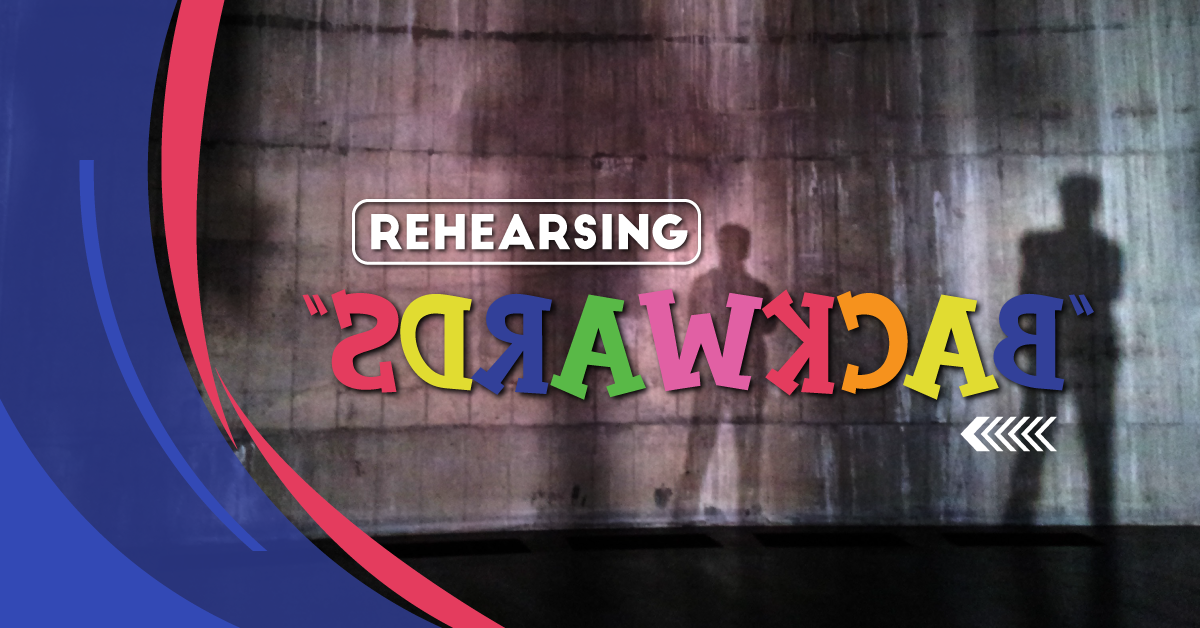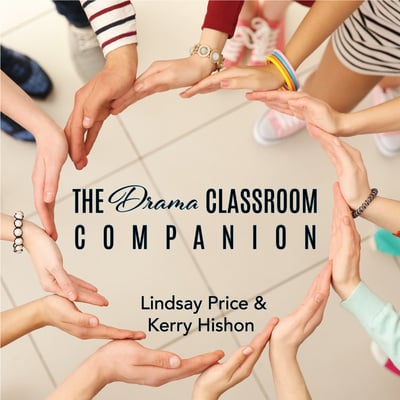10 Questions to Ask During Rehearsal
Questions are important in the theatre. They’re more important than answers. Rehearsing is all about exploration – at no part in the process should the exploration stop.
My favourite directors to work with are the ones who are always pushing you to explore the script more deeply. They know how to ask questions. They don’t necessarily expect answers to the questions, they expect the actor to explore the role based on the question. I’ve made some amazing discoveries about my character because of questions like these.
Here are ten of the most memorable questions I’ve been given in rehearsal.
Start rehearsal by posing one of these questions to your cast. Ask your cast members to individually think about the question during rehearsal. Be clear that this isn’t a test and their answers aren’t being graded. There is no “right” answer. There is no “wrong” answer.
1) If the playwright showed up today and started mercilessly cutting the script, what is the one line your character says that you would fight for? If your character has no lines, what moment would you fight for?
2) Think about the quietest moment in the play. Would an audience member sitting in the back row of the balcony be able to understand what you’re saying? What your character wants? What your character is doing? If not, what can you adjust to reach them?
3) Choose one of your lines and say it with the opposite intention. (e.g. Say “I really want that rose” with the subtext “Get that rose away from me. I never want to see it again.”) Did it work? If not, why? Is there another line that an opposite intention would work for?
4) What part of your own physicality do you use for your character? Can you change it to something unique to the character?
5) Is there anywhere else your character would rather be? Is there a place they dream of going?
6) What lies does your character tell? Which lines are lies but not obvious ones?
7) Choose one physical move your character makes. Why does your character move that way at that time and in that direction? (n.b. You should be able to answer these questions for every single move your character makes.)
8) What one action could you make as an actor to make something easier on a fellow cast member?
9) What one action could your character take to make something more difficult for another character? Are there times your character lets them win too easily?
10) Choose a pivotal moment for your character. What would happen if they made the opposite choice in that moment?
Processing the Questions
There are three approaches to processing these questions at the end of rehearsal. How you choose to process them will depend on your circumstances and the amount of time you have available.
- Informal
Leave the questions for the actors to consider on their own. If they find it helpful for their process, fine. If not, that’s ok too. I don’t recommend this for student actors because they’re going to want to share their discoveries with you. - Semiformal
As part of your rehearsal wrap-up, hold a short discussion with the cast about the question. This can be a great team-building activity. The cast will reveal things about the script that you never even considered. - Formal
If the play is being done as a class project, the questions are great for journal entries. Have students complete a written reflection for each question.
Related Articles
The Drama Classroom Companion
by Lindsay Price & Kerry Hishon
The Drama Classroom Companion is filled with articles and exercises to build the skills needed for theatrical performance as well as real world skills like creative thinking, critical thinking, collaboration, and communication.
The Rehearsal Companion
by Kerry Hishon
You’ve chosen the play, paid the royalties, done the script analysis, held your auditions, and cast the show. Tomorrow is the first rehearsal. Are you ready? Really ready? The Rehearsal Companion can help!





